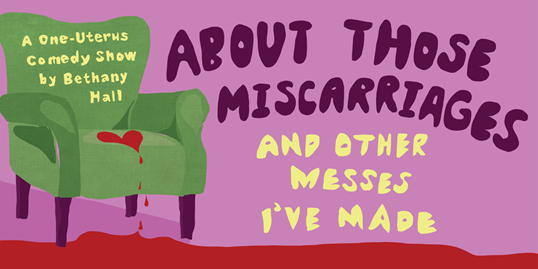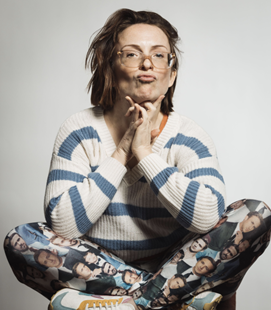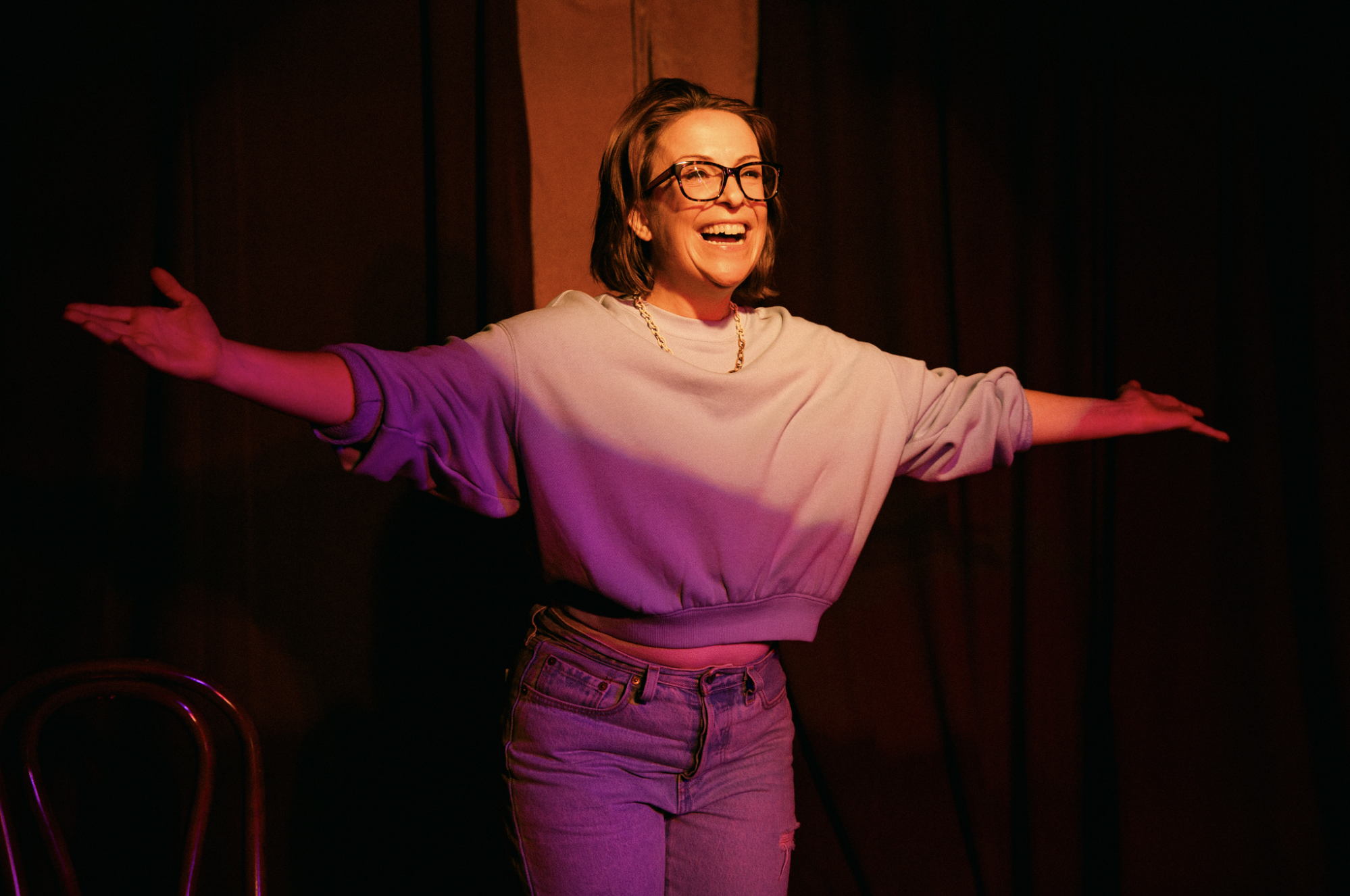
Bethany Hall Finds Power in the Mess: Comedy, Motherhood, and the Stories We Keep Quiet
Through her one-woman show and work at CMSI, Hall turns personal experience into honest, comedic storytelling.
Bethany Hall has been a comedian for nearly 20 years, but her latest project might be her most personal one yet. As the Creative Director of Comedy Initiatives at the Center for Media & Social Impact (CMSI), Hall spends a significant amount of time thinking about how comedy can address serious issues in a way that resonates with people. So when it came time to tell her own story, she turned to the tool she knows best.
Her one-woman show, About Those Miscarriages I Had and Other Messes I’ve Made, dives into the complicated and often taboo realities of miscarriage, motherhood, and identity. It is messy, funny, raw, and incredibly human.
“I only think in comedy,” she said. “So if I have a story I want to tell, it’s going to be comedic. Comedy is my love language. So as an artist, I think that’s just how I process, through jokes and through comedy.” 
That instinct to lead with humor is also deeply connected to her work at CMSI, where she helps support comedians who use their voices to challenge norms and spark change. This kind of work helped her realize that vulnerability and storytelling are not separate from advocacy. They are often where it begins.
“We often say at CMSI, joy is not the absence of pain. I think comedy is an extraordinary tool to normalize things that should be normalized. If I’m willing to shout and scream and sing and dance about miscarriages and the struggle of parenthood on stage, that empowers other people to talk openly and honestly about their own experiences.”
Rather than quieting the hard parts of life, Hall believes comedy gives them room to breathe. “There’s this narrative that we shouldn’t talk about it, or that if we do, it has to be subdued and quiet. And that something hilarious can’t be happening while something tragic is happening. That just isn’t true.”
In that way, comedy is not an escape from grief or discomfort, but a way to move through it. “I think when an audience watches somebody speak or dissect their truth, it makes folks feel less lonely. Validated. It gives people permission to reveal who they are.”
That spirit of connection was central to the show’s development. Hall created it in collaboration with other moms in her Montclair, New Jersey, neighborhood. Director Maureen Towey helped shape the story during late-night rehearsals. Composer Anne Eisendreth contributed original music that adds emotional weight to key moments. One song, “The To-Do List,” blends a rapid-fire list of everyday obligations with the constant pressure to look good and stay calm while managing it all.
“There are elements of the show that get really dark and really raw and honest, and it did feel like the only way to appropriately acknowledge those moments was with music, where you can convey so much pain and humor.”
Themes of pressure and perfection surface throughout the show, especially around the expectations placed on women. The message echoes the now iconic speech from Barbie, where America Ferrera’s character outlines the impossible double standards women face every day.
Hall’s show creates that same kind of recognition, especially for women who have carried grief, pressure, and guilt in silence. “I am so happy to be a woman. I’m so grateful to be a mother. But holy man, it is rough sometimes. And I still wouldn’t trade it.”

These conversations feel especially urgent right now, as reproductive rights remain a cultural and political flashpoint. Hall hopes the show permits others to speak more openly about experiences they may have been taught to keep hidden. “For a lot of us, the miscarriage is so gut-wrenching and devastating. And then if you layer public shame on top of that, it is intolerable.”
To make the show more widely accessible, Hall is currently working on distributing a recorded version for at-home viewing. “We really feel like this is a very personal show that we would like for people and women in particular to be able to experience in the comfort of their own home.”
The show does not offer easy answers. It is not designed to. But it does offer something to laugh at, something to feel with, and something to hold onto. And sometimes, that is exactly what is needed.
“Comedy gives people permission to be messy,” she said, “and to embrace who they are.”
